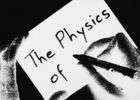Peter Tscherkassky
Biographie
Peter Tscherkassky was born in Vienna in1958 and studied journalism and political science at the University of Vienna from 1977–1979. He first came into contact with avant-garde film through a lecture series by P. Adams Sitney at the Austrian Film Museum in 1978. In 1979 Tscherkassky began his studies of philosophy, among other places, in Berlin, which he completed in 1986. In Berlin he began to make his own films and in 1981 met Austrian avant-garde filmmakers Lisl Ponger, Dietmar Brehm, and Ernst Schmidt Jr. Tscherkassky is a founding member of the “Austrian Filmmakers Cooperative” and the “UFVA – Unabhängiger Film & Video Austria.” Since 1984 he has also worked as a curator, whereby he is particularly concerned with presenting Austrian avant-garde film. Tscherkassky taught at the University of Art and Design, Linz, and at the University of Applied Arts in Vienna. He was artistic director of the Diagonale, the Austrian film festival in Graz from 1993-1994. Tscherkassky’s films have also been highly acclaimed internationally, and he has been honored with a number of prizes, including the Orizzonti short film prize at the 67th film festival in Venice in 2010. He published Film Unframed. A History of Austrian Avant-Garde Cinema in 2012; a first, comprehensive compendium on the history of Austrian avant-garde film.
Additional biography
Characteristic of Tscherkassky’s artistic oeuvre is his production of films without a camera. Instead, he works with found film material, so-called “found footage.” He draws his material from Hollywood productions, private amateur films, and also the early days of the cinema, for example, material from the Lumière brothers. In the darkroom, Tscherkassky arranges each individual cadre of the filmstrip. He uses contact copies to manipulate the film material, isolating spatial views, actors, and objects in an elaborate exposure technique using flashlights and laser pointers. He merges the fragments together into new narratives. This manual process—which the artist has dubbed “manufraktur”—creates traces such as scratches and blurs, thus allowing the film material itself to step forward. On the one hand, Tscherkassky’s work makes the physical foundation of the cinematographic space of illusion tangible, dismantling film from a critical perspective, while on the other hand, it appears as a celebration of the analogue material and its specific possibilities in an era of primarily digital image production. Tscherkassky’s examinations of cinema as view- and power apparatus, carried out in dialogue with psychoanalytical theory, occur in the field of reflexive work about the libidinous relationship between camera, screen, and beholder. In his most recent cinematic work, in particular, it is possible to sense a yearning for the film machine’s power to overwhelm. In light of Tscherkassky’s consistent cinematic work on the medium itself, one can speak of an oeuvre composed of “meta films.”
